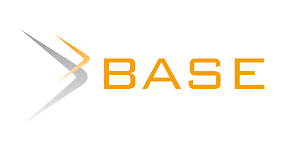Tauhid Sebagai Epistemologi Ekonomi Islam: Antara Spiritualitas Dan Keadilan Sosial
DOI:
https://doi.org/10.14825/qryh5v49Keywords:
Tawhid, Islamic Economics, Ethical Values, Muamalah, Social JusticeAbstract
This article aims to explain how the concept of tawhid (the oneness of God) influences the structure and practice of Islamic economics, which emphasizes justice, honesty, balance, and social responsibility. As the central tenet of Islamic theology, tawhid not only underpins the religious dimension of Islam but also serves as a moral and ethical foundation for all economic activities. This study employs a qualitative approach through library research, examining primary and secondary sources such as the Qur’an, Hadith, classical and contemporary Islamic economic literature, as well as the thoughts of Islamic scholars and experts in Sharia economics. The findings of this research highlight two main points. First, tawhid occupies a central position in shaping an economic paradigm that avoids exploitative practices such as riba (usury), gharar (excessive uncertainty), ihtikar (hoarding), risywah (bribery), and dumping. Furthermore, tawhid guides economic actors to perceive every transaction as an act of worship directed toward achieving falah—success in both worldly and spiritual dimensions. Second, tawhid gives rise to core ethical principles in business such as honesty, trustworthiness (amanah), responsibility, and justice. The main contribution of this article lies in offering a conceptual framework that positions Islamic economics not merely as a technical system of Sharia-compliant finance, but as a value-based system rooted in tawhid that permeates all aspects of muamalah (economic and social dealings). Therefore, a comprehensive understanding of tawhid is essential for implementing Islamic economics in a holistic and civilized manner.
References
Abdullah, M., & Ismail, A. G. (2014). Al-Tawhid in relation to the economic order of microfinance institutions. Humanomics, 30(1), 1–18. https://doi.org/https://doi.org/10.1108/H-01-2014-0006
Al Faruqi, I. R. (1982). Al Tawhid: Its Implications for Thought and Life. IIIT.
Amri, A. (2021). Ekonomi dan Keuangan Islam. Wida Publishing.
Antonio, M. S. (2001). Bank Syariah: Dari Teori ke Praktik. Gema Insani Press.
Aqbar, K., & Iskandar, A. (2021). Prinsip Tauhid dalam Implementasi Ekonomi Islam. Khiyar: Jurnal Ekonomi Dan Bisnis Syariah, 5(2), 197–209. https://journal.stiba.ac.id/index.php/khiyar/article/view/446
Arfiansyah, A. (2020). Tinjauan Etika Bisnis Islam dalam Corporate Social Responsibility PT. Garudafood Kabupaten Pati. Jurnal Ilmiah Ekonomi Islam, 6(3), 654–664.
Arnoldy, A., & Mariyanti, T. (2021). Implementation of Tawhidi String Relations (TSR) in Demand, Supply, Elasticity, and Market Equilibrium. Indonesian. Journal of Business, Accounting and Management, 4(2), 8–15. https://doi.org/10.36406/ijbam.v4i02.556 ejournal.stei.ac.id+1ejournal.uit-lirboyo.ac.id+1
Azharsyah. (2021). Pengantar Ekonomi Islam. Bank Indonesia.
Budiman, A., Mu’in, F., & A’yun, Q. (2022). Dating of Hadith About Riba; The Reflection Theory of Isnad Cum Matn Analyzed by Harald Motzki. Takwil: Journal of Quran and Hadith Studies, 1(1), 1–15. https://doi.org/https://doi.org/10.32939/twl.v1i1.1236
Fazira, D., Mardhatillah, A., & Salim, A. (n.d.). Ontologi Ekonomi Islam: Membangun Sistem Teologis yang Berbasis Tauhid dan Kepemimpinan Khalifah. Jurnal Al-Kharaj: Journal of Islamic Economic Law, 6(1), 34–50. https://ejournal.iainpalopo.ac.id/index.php/alkharaj/article/view/3792
Hilmiyah, N., Sa’adah, R., & Muslim, S. (2022). Tawhid and Shariah Economics: Positioning Tawhid as Philosophical Foundation of Shariah Economics. Al-Falah: Journal of Islamic Economics, 7(1), 18–31. https://journal.iaincurup.ac.id/index.php/alfalah/article/view/890
Kaelan. (2010). Metode Penelitian Agama Kualitatif Interdisipliner. Paradigma.
Mardani, D. A., Masuroh, I. S., & Ali, W. Z. K. W. (2022). Tauhidunomics: Religious Ethics and Economic Growth in Tasikmalaya. Temali: Jurnal Pembangunan Sosial, 6(2). https://doi.org/https://doi.org/10.15575/jt.v6i2.26036 journal.uinsgd.ac.id
Mubarok, M. S. (2022). Sistem Ekonomi Islam. Mitra Ilmu.
Mufid, M. (2018). Maqashid Ekonomi Syariah. Empatdua Media.
Mujahidin, M. (2021). The Principle of Tauhid and Ownership in Islamic Economic. Al-Kharaj: Journal of Islamic Economic and Business, 3(2). https://doi.org/10.24256/kharaj.v3i2.3792 journal.stiba.ac.id+3ejournal.iainpalopo.ac.id+3jurnal.stikes-ibnusina.ac.id+3
Permata, S., & Ikbal, M. (2021). Implementasi Etika Bisnis Pedagang Islam Dalam Transaksi Akad Bay’Al-Salam. Jurnal Asy-Syarikah: Jurnal Lembaga Keuangan, Ekonomi Dan Bisnis Islam, 3(1), 51–63.
Qaradawi, Y. (1995). Norma dan Etika Ekonomi Islam. Maktabah Wahbah.
Sardar, Z., & Malik, Z. (2018). Tawhid as the foundational Islamic methodological worldview: The advent of Tawhidi Islamic economics. International Journal of Islamic and Middle Eastern Finance and Management, 11(4), 551–564. https://doi.org/10.1108/IJIF-02-2018-0025
Sugiarto, I. (2025). Pengantar Ekonomi Islam. Intake Pustaka.
Thian, A. (2021). Ekonomi Syariah. Penerbit Andi.















